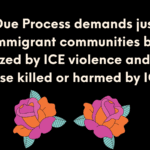Even if you are under 18, it is still your right to decide what to do about your pregnancy. You are not alone; in 2011, almost 60,000 teenagers in Texas found out that they were pregnant. If you are pregnant, you have three options: abortion, adoption, or parenting. There are resources to support you regardless of which choice you make, but that doesn’t mean any choice will be easy or seem fair. As the school year starts up again, we wanted to share some resources and facts about teen pregnancy that will be relevant to you, to adults who work with teenagers at school or community programs, or to anyone who want to better support pregnant teenagers.
Backline, 1-888-493-0092, is a hotline that provides confidential, medically accurate, and non-judgmental all-options pregnancy counseling to help you decide what to do. You can also text “PPNOW” to 774636 (PPINFO) to get information from Planned Parenthood about emergency contraception, pregnancy tests, abortion, and prenatal care. Only you can decide which option to choose. You cannot be forced by your parents, your partner, or anyone else to choose abortion, adoption, or parenting.
Abortion is the only option that will end your pregnancy. In Texas, you can have an abortion until the 20th week (fifth month) of your pregnancy, except in the case of medical emergency. If you are under 18, state law requires you to obtain parental consent to have an abortion. If you do not want to tell your parents or if you have trouble getting them to sign the consent form, you may still be able to get an abortion by applying for a judicial bypass. This is an order from a judge that gives you permission to have an abortion without involving your parents. It is private and confidential, and you will have a lawyer to help you at no cost to you. The whole process may seem unfair: many abortion clinics have schedules that may conflict with school, and it might be difficult to find the financial resources to pay for the abortion. If you are considering a judicial bypass, you can call our free hotline at 1-866-WWW-JANE or 1-866-999-5263.
If you choose adoption, you give your parental rights to someone else and the person who adopts your baby becomes the baby’s legal parent. There are two types of adoption, open and closed. They differ in the amount of information you and the adoptive parents have about each other, and whether you will have contact with your child in the future. You can get information on adoption agencies from the Texas Department of Family and Protective Services, 1-800-233-3405, the Texas Youth Hotline, 1-800-989-6884, and the National Adoption Information Clearinghouse, 1-800-251-0075.
If you want to parent, you have the right to stay in school and access parenting resources. Although Title IX, a federal law passed in 1973, protects pregnant and parenting teens, discrimination is still pervasive: approximately 70% of teenagers who give birth leave school, according to the American Civil Liberties Union (ACLU), and evidence suggests that illegal discrimination is a major contributing factor to this high dropout rate. The ACLU and the National Women’s Law Center (NWLC) both work to protect the rights of pregnant and parenting teens to stay in school and graduate prepared for college and careers. The NWLC has a guide to your rights under Title IX, which include participation in sports and excused absences for pregnancy-related medical care. Beyond school, young parents have talked about their struggles finding affordable health care, housing, and childcare. Other young parents describe discrimination at school and work. You can contact your Senators and ask them to support the Pregnant and Parenting Students Access to Education Act which would provide grants to states for programs to support pregnant and parenting students.
If you are a pregnant or parenting teen in Texas and have issues with discrimination or accessing your Title IX rights, talk to the Title IX coordinator at your school. All schools that receive federal funding, which includes almost all public schools, are required to have a Title IX coordinator. Know that in Texas, any adult who has reason to believe you are a victim of abuse is required to report the abuse. If your school is not helpful, you can call our free hotline at 1-866-WWW-JANE or 1-866-999-5263.
Texas has many programs that can support you as a parent. They include the Healthy Texas Women Program, CHIP Perinatal Coverage, the Nurse-Family Partnership, WIC Nutrition Program, Early Childhood Intervention, and others. You can also get child support from the baby’s father.
You also have protection from sexual harassment (unwanted touching or comments) and dating violence at school. Remember that you NEVER deserve to be harassed or abused, no matter what you decide to do about your pregnancy. Federal law says that if your school knows you are being sexually harassed and doesn’t do anything to stop it, they can be held financially liable. You can talk to a teacher, counselor, or another adult you trust at your school. If you have experienced dating violence, the school is legally required to enforce protective orders or help you make a safety plan. You can call the National Teen Dating Violence Helpline, 1-866-331-9474 or text “loveis” to 22522, or the Texas Advocacy Project at 1-800-374-4673.
If you give birth planning to parent your baby, but find that you can no longer parent, Texas provides the “Baby Moses law.” If your baby is under 60 days old, you can leave your baby at a designated safe location including hospitals, emergency clinics, and fire stations. You must take the baby inside and give it to someone responsible in person in order to be covered by the law.
If you are under 18 and find out that you’re pregnant, remember that you are not alone. If you have questions, you can always call the Jane’s Due Process legal hotline and we can help you find resources and information to make the best decision about what to do next.



